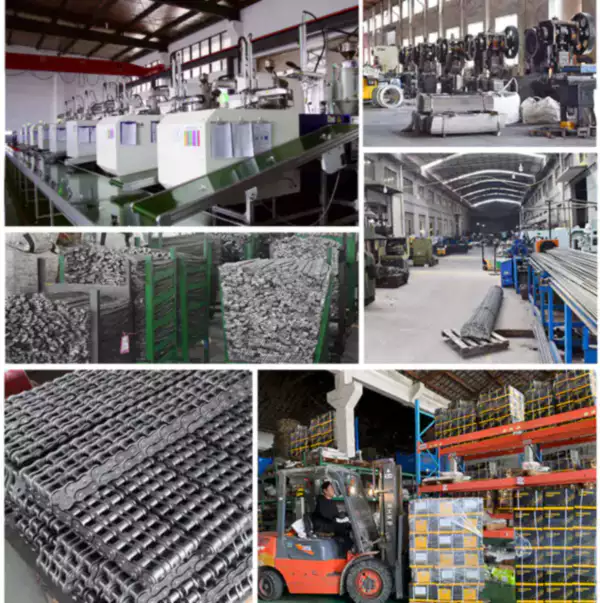Introduction
Gripper chains are robust industrial chains designed to provide a secure grip on a variety of products, materials, and components. These chains are used in numerous applications, including assembly lines, conveyor systems, and material handling equipment. In this article, we will explore how gripper chains are adapted for use in hazardous environments, including those that are subject to extreme temperatures, corrosive chemicals, and heavy loads.
Understanding Gripper Chains
Gripper chains are made from high-strength steel alloys and feature a unique design that includes a series of interlocking teeth or “grippers” that provide a secure grip on materials. These chains can be configured with various types of grippers, depending on the application, and are available in a range of sizes and strengths. Gripper chains can also be customized with different coatings, such as zinc plating or polyurethane, to enhance their durability and resistance to corrosion.

Adapting Gripper Chains for Hazardous Environments
Gripper chains are designed to operate in a variety of environments, including those that are subject to extreme temperatures, corrosive chemicals, and heavy loads. To ensure that gripper chains can withstand these conditions, manufacturers may use specialized materials and coatings, such as nickel-plated steel or Teflon. Additionally, gripper chains can be designed with features such as heat-resistant grippers or reinforced links for added strength and durability.

Applications of Gripper Chains in Hazardous Environments
Gripper chains are commonly used in hazardous environments such as mining, oil and gas, and chemical processing facilities. In these applications, gripper chains must be able to withstand extreme heat, exposure to corrosive chemicals, and heavy loads. For example, gripper chains may be used to move heavy pipes or large containers of hazardous materials through a facility. In the mining industry, gripper chains may be used to convey heavy loads of minerals or to transport equipment through underground tunnels.

Benefits of Using Gripper Chains in Hazardous Environments
The use of gripper chains in hazardous environments offers several benefits, including increased safety, efficiency, and reliability. Gripper chains can provide a secure grip on materials, reducing the risk of spills or accidents. Additionally, gripper chains can be customized to fit specific applications, improving efficiency and reducing downtime. Finally, gripper chains are highly durable and resistant to wear and tear, ensuring reliable performance even in the most challenging environments.
Gripper Chains Purchasing Guide
| Parameter | Considerations |
|---|---|
| Size | Ensure the chain is the correct size for the application |
| Strength | Choose a chain with the appropriate strength for the load |
| Coating | Select a coating that provides the necessary protection for the environment |
| Gripper Type | Choose a gripper type that is well-suited for the materials being conveyed |
Sprockets for Gripper Chains
Sprockets are an essential component of gripper chains, as they provide the necessary traction to move materials through an application. At Everpower, we offer a variety of sprockets that are specifically designed to work with gripper chains. Our sprockets are available in a range of sizes and materials, including cast iron and steel, and are designed to meet the highest quality standards.

Why Choose Everpower for Your Gripper Chain Needs?
- We are a leading manufacturer of high-quality gripper chains, with years of experience in the industry.
- We offer a wide range of gripper chains in various sizes, strengths, and coatings to meet your specific needs.
- Our gripper chains are designed to provide reliable performance in even the most challenging environments.
- We offer competitive pricing and fast turnaround times to ensure that you get the products you need when you need them.
- Our commitment to quality and customer satisfaction is unmatched in the industry.

Q&A
Q: Can gripper chains be used in food processing applications?
A: Yes, gripper chains can be used in food processing applications. However, it is important to choose a chain with a coating that is safe for food contact, such as stainless steel or polyurethane.
Q: What is the maximum temperature at which gripper chains can operate?
A: The maximum temperature at which gripper chains can operate depends on the specific materials and coatings used in the chain. Some chains can operate at temperatures up to 1000¡ãF, while others may be limited to lower temperatures.
Q: Can gripper chains be used in underwater applications?
A: Yes, gripper chains can be used in underwater applications. However, it is important to choose a chain with a coating that is resistant to corrosion and rust, such as zinc plating or nickel plating.
Edited by Zqq.
